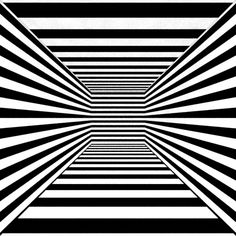|
LITR 4368 Literature of the Future |
Sample answers
for Essay 1:
|
 |
Andrew E. Ridenour
The Other Possible Futures
Before taking this course, Literature of the Future, whenever I
considered what the future may be like, I always saw it as a super modern,
high-tech society with flying cars like the “future” as presented in the film,
Back to the Future II. However, after enrolling in this class I was
properly introduced to the other scenarios of the future not as well known as
High-Tech: Low-Tech, Ecotopia, and Alien Contact. All of these scenarios are in
truth rough sketches, outlines, or descriptions of an imagined situation or
sequence of events since the future has not happened yet. No one can be sure one
way or another as to what it will be like, but as scenarios, they are in fact no
different from the idea of a high-tech future, but in their own light may be
more practical. We are able to discuss these scenarios in the first place
because of science fiction literature where these ideas were born with pen and
paper. As Karin Cooper wrote in her final exam in 2015, “In science fiction
there are no limits to what can be written. Whether the author wants to paint
our future in a positive light, or a grim, and scary one, no one can contradict
what will, or will not happen because there are no boundaries to science
fiction.” During this course, I was able to read a number of texts and short
stories related to each of these possibilities of the future. Honestly, I found
the literary style as written in the futuristic High-Tech stories confusing and
hard to follow. On the other hand, when I read the texts for the Low-Tech,
Ecotopia, and Alien Contact futuristic options, they made me think twice, and I
now think any one of them are more likely to develop than High-Tech. I found the
various texts written pertaining to the aforementioned other three scenarios
easier to read, understandable, and imaginative. Here we will examine these
three other possible futures, and consider what the odds are of any of these
scenarios becoming a reality in the future.
The first “other” scenario of the future that we will look at is Low
Tech. A Low Tech society is one that encourages re-engagement with actual
reality, particularly biological human existence such as family relations,
physical contact, and organic food. Of all the possibilities of the future, this
one seems to me to be the most likely outcome of the world’s future. Compared to
what people think a High-Tech society would look like our world at present
resembles a Low-Tech society to a certain degree. Technology may advance a
little more than where it is now, but not much more, as humans may find simpler
tools to use for accomplishing work. This is not to say that all mankind will
become trapped in a cyberspace world as in The Onion and I or lose the
ability of speech as in Speech Sounds, simply that more, rather than
less, things as they are now will continue to be as they are in the future,
though computers can make simple tasks effortless, and speech will adjust with
time as it always has. Certain tools may be redesigned becoming newer and
smoother, and more efficient as time permits. Looking at the world of today,
most people will probably want newer technology such as more efficient cars with
better mileage that perform with less fuel consumption. The problem is that a
number of influential people in the present do not want such technology to
exist. The economics of our society concerns money and profit. If production and
technology are profitable, all will continue as in the present. If it shows
advancement and no profit in the distant future, then technology will not be
allowed to advance. In other words, although it may happen one day, do not
expect a flying car to appear on the market for a long time.
The next “other” scenario of the future is commonly known as Ecotopia.
Ecotopia is described as an ecological utopia, meaning a community whose
collective social health imitates nature’s interconnectivity. Basically, if all
technology were revamped to use green, natural energy, and humans become one
with nature instead of exploiting and abusing it, the future of the world would
be healthy, satisfactory, and, in it’s own way, superior to the world of today.
The basic idea of this society is depicted best in Ernest Callenbach’s novel
Ecotopia. Though other texts such as Chocco and House of Bones
portray this idea, they make Ecotopia sound is if its society is primitive
instead of advanced. Of the three “other” scenarios this one sounds to me like
the best idea. A better world, almost a utopia, made possible by nature.
Ecotopia would undoubtedly be a good place, but it is unfortunate that it
currently does not exist. True, there are a number of scientists and engineers
working on the possibility of Ecotopia becoming a reality, but all that has been
advanced so far is weak and not very practical. The reason Ecotopia is having
such a hard time developing, is the same reason why the world’s future is most
likely to be Low-Tech. Just as with High-Tech, there are a number of popular
businessmen who do not want it to become a reality, because they would lose
their power, and wealth. Men such as the directors of oil, rubber and related
industries do not want to see flying cars, or natural, oil free energy. Not only
this, but the general population would have to be convinced that Ecotopia is
advancement and not the other way around. Ecotopia may very well be the way of
the future, but as long as there are people profiting on the present, one should
not be too hopeful.
The final “other” scenario of the future is Alien Contact. This of course
means exploring for extraterrestrial beings in space or being explored by those
from space. Of all possibilities of the future, this is definitely the one that
is the most fun for literary authors and film producers. As a result, the common
consensus of this idea is that aliens are superior to us in technology
(particularly weapons), and that if they do come to Earth, they will invade us,
as portrayed in the film Independence Day, and experiment on us like
animals in a terrarium, such as in, The Popular Street Study. This
description also shows why a lot of people consider this to be only pure
fantasy. I will admit that I was of this opinion as well, until I recently began
to take a look at the other side of the argument. The concept of what if the
aliens are good, as depicted in the film E.T., and want to share their
technology and advances with us is not considered by most individuals. There is
a minority of people who seem to be convinced that one day the aliens will
arrive from space and this will be the case. Their idea is that we will finally
escape the corruption of our world when they come and take us some place better.
Since humans are not allowed to advance in technology by powerful
industrialists, perhaps we simply have to wait until such technology is given to
us from an out of this world source. Until then, humans will have to live in a
Low-Tech, or maybe and Ecotopian society as those seem to be the only
alternatives. This does sound like a rather far fetched idea, though anything is
possible, especially in science fiction. The only real problem with this concept
is presented by the Fermi Parodox: the universe seems large enough to have other
forms of life residing on other planets, but if aliens do exist, why have we not
seen them before? Perhaps aliens have been studying us for some time but have
decided for one reason or another to pass us by as in, They’re Made of Meat.
It is a fair argument to say that those waiting for alien contact have a point,
but on the other hand, they could be waiting for something that is never coming.
Looking back, I can see that before I took this course I was very narrow
minded when it came to visions of the future. Literature of the Future has
helped me to develop a much wider view as I look forward to the many
possibilities the future may bring, while at the same time allowing me to take a
look at a number of impressive texts that illustrate the different scenarios of
the future. Comparing and contrasting these various scenarios has also helped me
picture them a bit clearer and while they are all similar in some respects, they
are all very different in a number of ways giving them more color. Personally,
the scenario that appeals the most to me that I would like to live in is the
possibility of Ecotopia. If everything the Ecopotians portray could in whole
become a reality, I believe that the world would have no reason to fear the
future, and mankind would be able to live comfortably in a world that is
naturally safe and secure. Until then we will have to make do with what provided
for at present. Whatever the case, I look forward to what the future may bring,
and all the different literature of this genre that may or may not exist yet.




